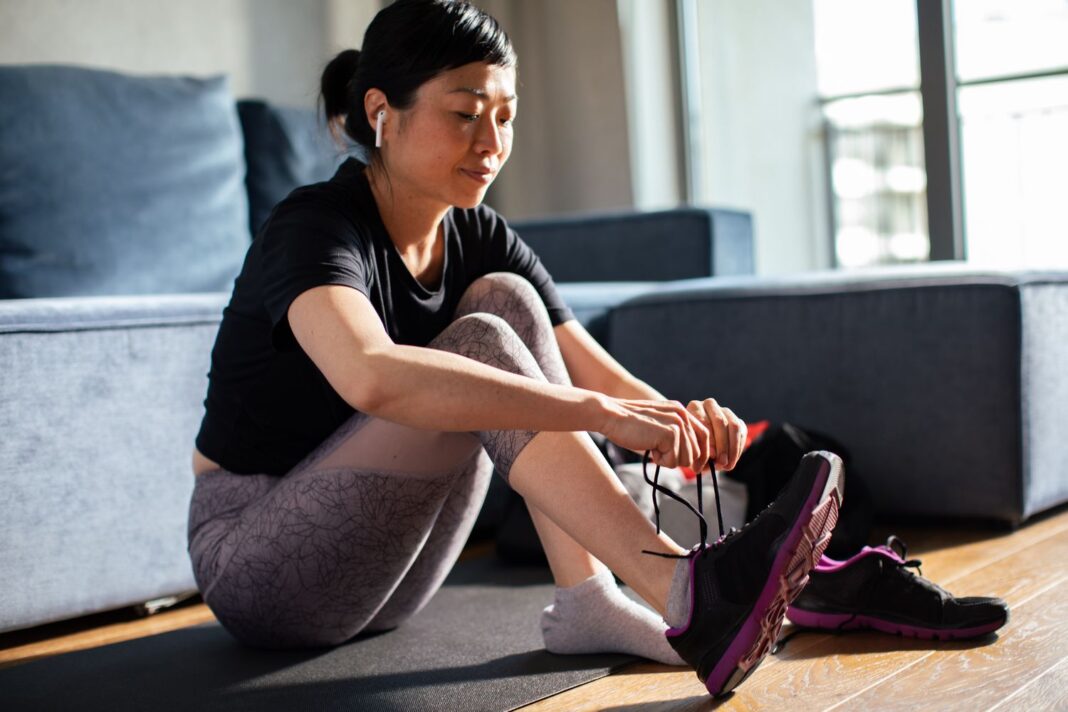There are several treatments for Crohn’s disease. Some people who have the condition want to try alternative therapies or a different approach to managing their condition.
Some evidence supports the use of complementary therapy; however, in most cases, more research is necessary to support the evidence.
vorDa / Getty Images
1. Acupuncture
Acupuncture is a practice that originated in China. It uses thin needles inserted into the skin at specific points to treat various health conditions. A meta-analysis from 2018 discussed how acupuncture improved Crohn’s disease symptoms. However, the study suggested more research is necessary to back up these claims.
Another study from 2019 describes people with Crohn’s disease who received 10 acupuncture treatments over four weeks as having a lower Crohn’s disease activity index (CDAI) score than those in the control group.
2. Moxibustion
Moxibustion is the practice of placing hot, burning materials on specific areas of the body to treat different health conditions. A variation of the practice is herb-partitioned moxibustion (HPM), which uses herbs added to a burning cone to be placed on the skin.
A 2022 review describes how HPM encouraged the repair of damaged colon tissues in rats. This research is encouraging; however, studies of human subjects remain necessary.
3. Mindfulness Techniques
People with Crohn’s disease are more likely to experience depression, anxiety, and stress. The connection between the brain and gut (called the brain-gut axis) describes how mental health can affect gastrointestinal health.
Mindfulness techniques include meditation, focused breathing, yoga, and body scans. A 2022 study found that those with Crohn’s disease doubled their subjective well-being score when they participated in mindfulness techniques.
The theory behind this is that mindfulness can reduce stress and inflammation. It can also support emotional health and the emotional response to certain stressors.
4. Meditation
Meditation can quiet the mind, remove distractions, and ease stress. There are numerous ways to meditate. Below are a few types that people with Crohn’s disease can try:
- Focused meditation: Concentrate on a single object, thought, or spot to ignore distractions.
- Transcendental meditation: Silently repeat a phrase or mantra to quiet the mind.
- Guided meditation: Listen to someone (in person or on a recording) who will guide your thoughts, focus your breathing, and increase your body awareness.
5. Hypnotherapy
Hypnotherapy, also known as hypnosis, uses directed relaxation techniques with guided mental images and suggestions to change behaviors and alleviate symptoms.
This process does not cause the person to go into a trance; they never lose their free will. It allows the person to become receptive to suggestions, and they will only respond to those suggestions if they want to.
In people with Crohn’s disease, hypnotherapy may help reduce pain or lessen stress.
6. Biofeedback
Biofeedback is a method that teaches the body how to control normally uncontrollable responses like heart rate, temperature, and blood pressure. Learning to control these body functions may help improve certain health conditions.
A biofeedback training session involves a trained therapist who connects sensors to the body to detect response changes. When the sensor detects a change in the body, it relays a signal, a flash of light, a sound, or another visible or audible change. Over time, the person will learn how to control these automatic functions.
In people with Crohn’s disease, biofeedback can manage incontinence and constipation. It can also help lessen stress and anxiety that can occur with the condition as well.
7. Exercise
Regular exercise can help manage weight, blood pressure, and heart disease. There is evidence that it also reduces the risk of other health conditions in those with Crohn’s disease. However, more research on a larger group is necessary to provide more conclusive evidence.
8. Taking Vitamins and Supplements
People with Crohn’s disease may need vitamins and supplements for one or more reasons. The condition can cause improper nutrient absorption, decreased appetite, or diarrhea. Also, some medications for Crohn’s disease can decrease the levels of certain vitamins or minerals in the body.
The vitamins or minerals that may need to be supplemented are:
9. What About Probiotics and Prebiotics?
Probiotics are bacteria or yeast that can be consumed in food or as a supplement. Prebiotics feed probiotics and promote their growth. A person with Crohn’s disease may have an altered gut microbiome, which means an imbalance in the bacteria in the intestine.
Research suggests probiotics can help restore the gut microbiome and improve Crohn’s disease symptoms. However, the study notes that more research is necessary to understand how probiotics work with Crohn’s disease.
Other Natural Options
There are many ways to treat Crohn’s disease. Natural options should be used with any treatments or medications a healthcare provider prescribes. Some natural options include:
- Dietary changes
- Anti-inflammatory foods
- Turmeric
- Avoiding caffeine, alcohol, and tobacco
Are There Risks for Complementary Therapies?
Complementary therapies are often viewed as not posing any risks because they are natural or do not involve medication.
Each complementary therapy carries its own risk. Although the risk is often low, therapies may interact with prescribed medications. Always contact a healthcare provider before starting a complementary therapy to ensure it is safe.
Work With Your Healthcare Provider
Crohn’s disease treatment varies from person to person. It’s important to work with your doctor to determine the best treatment plan for your situation. Complementary therapies can have a place in Crohn’s disease treatment, but they need to be communicated with the provider to ensure they are appropriate and safe.
Summary
Crohn’s disease is a complicated condition that requires the treatment guidance of a healthcare provider. Some may find that they want to try a different treatment outside of traditional medication. Complementary therapy is an option that can include yoga, meditation, probiotics, and more. Always consult a healthcare provider before starting a complementary therapy for Crohn’s disease.





